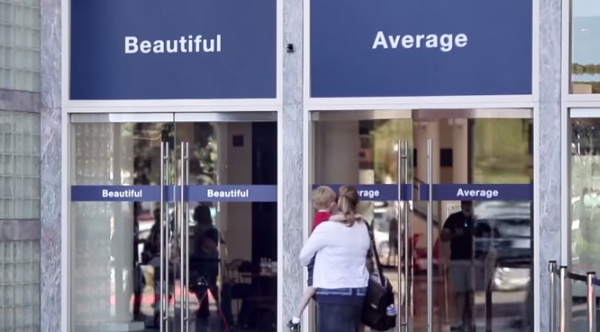The area behind our neighbor’s backyard here in the city always seemed like a good site for an archaeological dig or, at night, a haunting. It looked like at some point in recent history dinner parties had been hosted there. I imagined late night talks around the small fire pit and Sunday afternoon barbecues, standing room only.
But now? Weeds grew up through the uneven brick patio, weeds as tall as me. Chairs had been left askew, as if something had sent everyone scurrying and they had never come back. In the first few weeks after we moved in, I noticed the door to the garage behind the courtyard wasn’t always closed.
Concerned that someone might walk into the small garage and take something, I told Paul that the door to his garage was open. But he just waved his hand slowly in the air, as if warding off a pesky fly.
“It’s okay,” he said, not looking at me, his eyes gazing out on to James Street.
* * * * *
Paul was a complete enigma to me. I figured he was around 70 or 75, but it was hard to say. He used a cane to get from his front door down his steps to his motorized scooter, which we sometimes saw him driving through the city. If the weather was nice, he was always on his porch. Always, from morning to night. He knew who was coming and going in the neighborhood, and his persistent calls to the police about suspicious activity a few doors down forced a drug dealer to leave the neighborhood. I liked knowing Paul was out there, watching.
When Leo was just a newborn, not sleeping well, one night I took him out on to our front porch. It must have been 3am. The summer air was heavy. Every so often, someone walked past our house, coming and going through the angled halo of street lights and shadows. I walked out on to the porch, and there sat Paul on his porch. It kind of startled me, his constant presence. I said hello, and neither of us commented on the strange hour it was to be seeing each other.
We sat there for a long time in the middle of the night, neither of us saying anything, Leo new and silent on my lap, the occasional passing car putting him to sleep.
That’s one thing I always liked about Paul. He could sit there in silence. He never made me feel like we had to talk.
I went inside for a glass of water, and when I brought Leo back out, Paul was gone.
* * * * *
This past winter was a hard one for Paul. He was in and out of the hospital with complications from a bowel surgery. He never came out on to his porch, not even on the nice days. Then I saw him in the barber shop on a warm winter day. The place smells of after shave and hot soap. The one entire wall is glass facing out on to James Street, and the winter sun glared down on us. Paul looked ashen, thinner than before. He looked like a survivor. He smiled when he saw me, and he told me about his recent escapades in the hospital. I asked him how he felt.
“I’m not dead yet,” he said, laughing.
* * * * *
A month or two later, I fumbled with the key to my front door. Two of Paul’s daughters came out of his house. They looked tired and stretched.
“Oh, Shawn,” one of them said. “I’m glad we caught you.”
“Are you okay?” I asked.
They both sort of smiled through a cloud of sadness, and I realized they had been crying.
“My father passed away last night,” one of them said. “He’s gone. He’s gone.”
She said it twice like that, as if she didn’t quite believe it herself, as if she would need to go on saying it for quite some time before the truth of the thing would settle in.
* * * * *
We had various conversations with Paul’s daughters for the next few months as they came and went, taking out a box of things here, a box of things there. The boxes didn’t look hard to carry, but they were heavy, if you know the weight of sadness, the density of lost things.
I found out at some point during those visits things I had never known about Paul and also about his wife who had passed away before we had moved in. Like how much she had loved that house. Like how it had been her idea to paint the trim of the house purple and light blue and how Paul had done it willingly because he would do anything for her. How they had spent so much time in their back courtyard together.
And how, one day many years before, she had fallen there in the courtyard, striking her head on a planter. She died soon after that.
There are empty courtyards all around us, growing high with weeds. Maybe we let the weeds grow, so we don’t have to see the beauty of a thing anymore, the heart of the sadness. Maybe we let the door open because, why not? Let the thieves come: everything we cared about has already been taken.
* * * * *
I’ve wondered if I should have asked Paul more questions about his wife. I’ve wondered. But I’m okay with the quiet times we shared, each of us to each, each of us on our own porch, each of us watching the cars and people pass on James Street. I’ll not soon forget that quiet night at three in the morning, the three of us sitting in the hot summer night: Paul, Leo, and I. It’s strange to think that Leo’s first summer on earth was Paul’s last. It’s strange to think these things are happening all the time, all around us, if we’ll only open our eyes.






